NTHU Establishes Guidelines for AI in Education
2023.05.01
In response to the advent of generative artificial intelligence (AI) chatbot ChatGPT, National Tsing Hua University (NTHU) in Taiwan announced on May 1st the Guidelines for Collaboration, Co-learning, and Cultivation of Artificial Intelligence Competencies in University Education, becoming the first university in Taiwan to explicitly promote AI competence.
Earlier in February of this year, NTHU set up a task force to discuss ChatGPT. The convener of the task force was vice president for academic affairs Wu Yung-hsien (巫勇賢), who explained that in addition to incorporating AI into curricula, workshops and seminars will also be held to comprehensively improve the AI competence of teachers and students, thereby turning this new challenge into an opportunity for cutting edge research and teaching.
NTHU president W. John Kao (高為元) believes that the impact of generative AI on both education and employment will be huge and unavoidable. Taking the biomedical industry as an example, it currently takes years to develop new pharmaceuticals, but with the use of AI tools it will be possible to produce thousands of new drug combinations in just a few days, while reducing costs considerably.
“There is no point in making an empty endorsement; what is really needed is to improve students' ability to integrate and analyze knowledge,” said Kao, encouraging both teachers and students to embrace the new wave of AI and to skillfully integrate it into their studies, teaching, and research.
Broad academic representation in the task force
The AI task force included representatives from each of the colleges at NTHU, plus two student representatives. The resulting Guidelines encourage teachers and students to make use of various AI products in a transparent and responsible manner, and to embrace the principles of “Learning with AI” and “Working with AI” for both teachers and students, thereby integrating AI competence into their work and studies.
For example, the Guidelines recommend that teachers use AI for producing subtitles and slides for videos shown in class, providing students with class notes and review materials, assisting in the preparation of lesson plans and syllabuses, and finding recent examples. As for students, they are encouraged to use AI as an auxiliary cross-domain learning tool, which can assist in topic development, polishing papers, foreign language editing, efficient compilation of key documents, and preparing outlines.
Transparent and responsible use of AI
However, the Guidelines also emphasize that the use of AI by teachers and students alike needs to adhere to the principles of transparency and responsibility. Teachers should clearly define the norms for the use of AI in the course, and students should be transparent in their use of AI tools. In addition, users should not blindly accept the information provided by AI, but should rather carefully evaluate its correctness and be willing to take responsibility for the AI-generated information they use.
To address concerns about plagiarism and cheating, the Guidelines recommend that teachers arrange assignments and reports in a variety of formats, such as oral presentations, group discussions, and situational problem solving, which also can help students internalize and construct knowledge. Moreover, exams should use questions that require in-depth reasoning and analysis, focusing on students' critical thinking and creativity.
Workshops, micro credits, and incorporating AI into curricula
As for improving students' AI competence, Wu said that basic and advanced AI curricula with 19 and 21 credits, respectively, have been set up, and that a number of workshops have been planned to teach students to use popular AI tools like ChatGPT and Midjourney. In addition, next semester a micro-credit course will be offered, focusing on the background, evolution, and risks of AI technology.
Wu said that the University also plans to incorporate AI into existing curricula, such as engineering, business management, education, arts, humanities, and social sciences. In light of the increasing demand for personnel adept in AI technology, NTHU is also planning to hold related competitions and special programs to encourage students to participate in self-learning groups and to engage in cross-field and cross-cultural cooperation.
AI in course planning
At present, many teachers at NTHU are using ChatGPT to produce course syllabuses, including Wang Wei-Yi (王維一) of the College of Semiconductor Research, who is teaching a course on third-generation wide gap semiconductors next semester. Wang said that it used to take weeks to produce a course syllabus, but now it can be completed in half an hour with the help of AI. He added that AI is incredibly powerful, like hiring a private consultant for free, and that it makes research and teaching twice as effective.
Wang plans to teach students how to make use of common AI tools for conducting research and development, finding related literature, and writing papers. As Wang sees it, the traditional approach of teachers teaching and students listening is on the way out. For a standard class which runs three hours per week, he uses only one hour for lecturing, leaving the remaining two for student presentations and discussions, since this is what improves students’ communication skills and their ability to carry out research and development.
Student responses to the AI challenge
Ou Yu-en (歐予恩) is currently a senior in the College of Nuclear Science who is preparing to begin graduate studies in the Institute of Physics. He became interested in ChatGPT soon after it came out, and he has assisted one of his teachers in organizing a special lecture and a workshop, in which he shared his experience with generative AI.
Ou has already used ChatGPT to develop more than a dozen cross-domain application components, including an app for setting up a customized radio station which broadcasts music according to one’s walking speed; his app will be unveiled at the Young Designer’s Exhibition.
Many students in the arts and humanities are anxious about the increasing use of generative AI, but Ou sees it differently. He believes that the advent of generative AI has lowered the threshold of programming so much that even students who don’t know a programming language can write a simple program and make an app, “opening up a new path for learning.”
Guidelines for Collaboration, Co-learning, and Cultivation of Artificial Intelligence Competencies in University Education can be seen at:
http://ctld.nthu.edu.tw/download/index.php?mode=dl&id=134
http://ctld.nthu.edu.tw/download/index.php?mode=dl&id=134
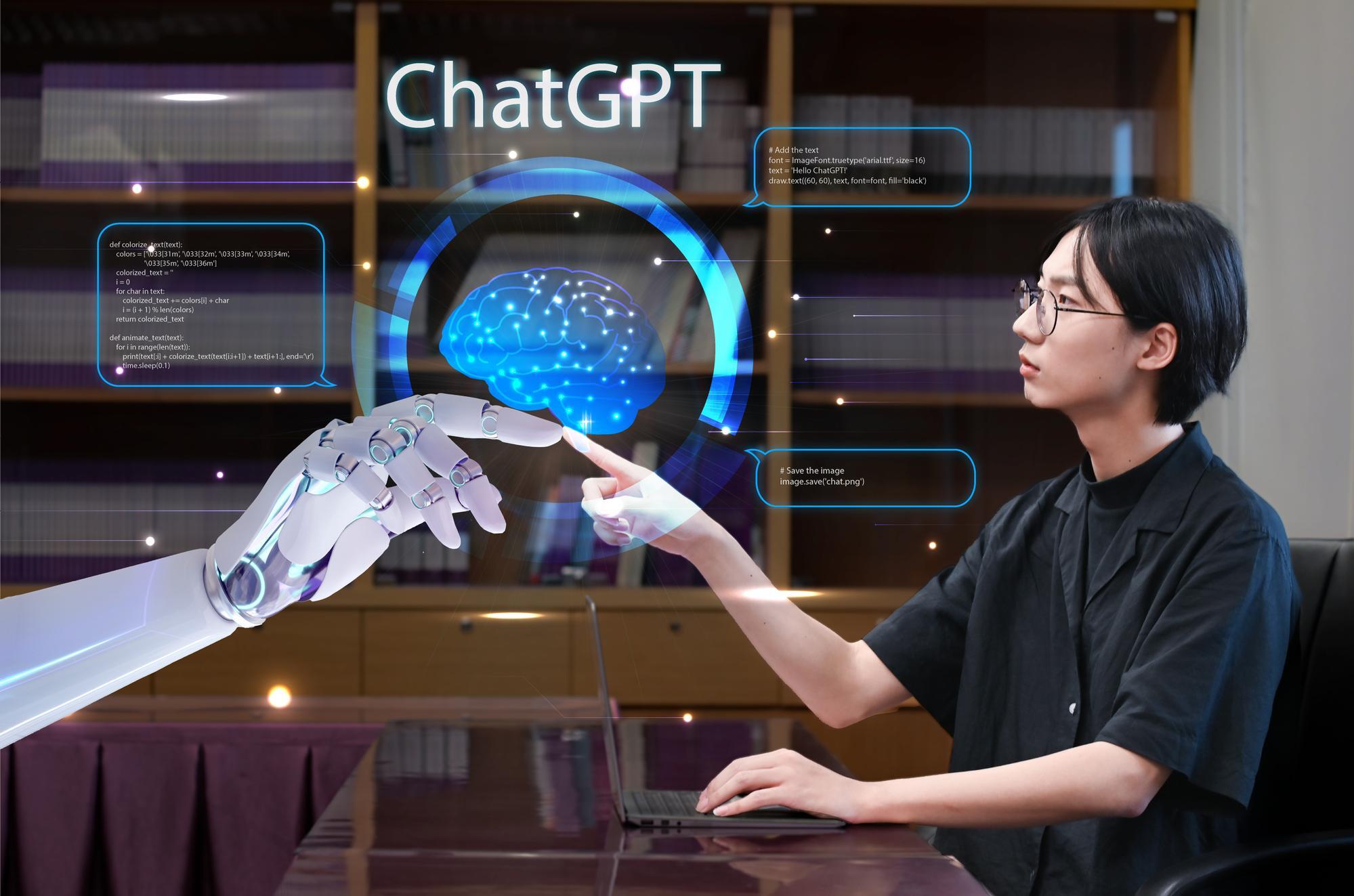
NTHU has recently announced the Guidelines for Collaboration, Co-learning, and Cultivation of Artificial Intelligence Competencies in University Education. Student Ou Yu-en (歐予恩) at a workshop sharing his experience with generative AI.
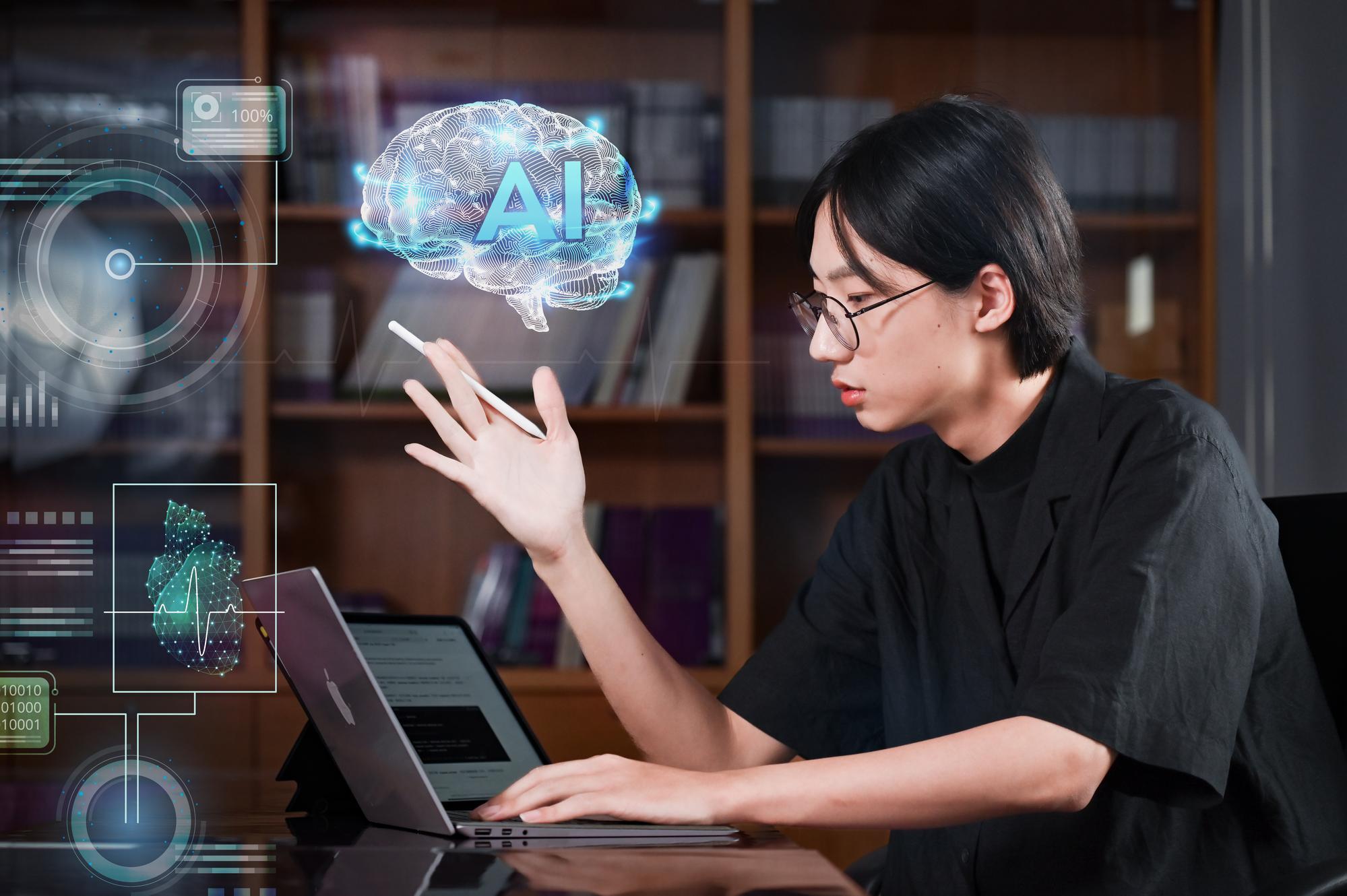
NTHU has recently announced the Guidelines for Collaboration, Co-learning, and Cultivation of Artificial Intelligence Competencies in University Education. Student Ou Yuen (歐予恩) at a workshop sharing his experience with generative AI.
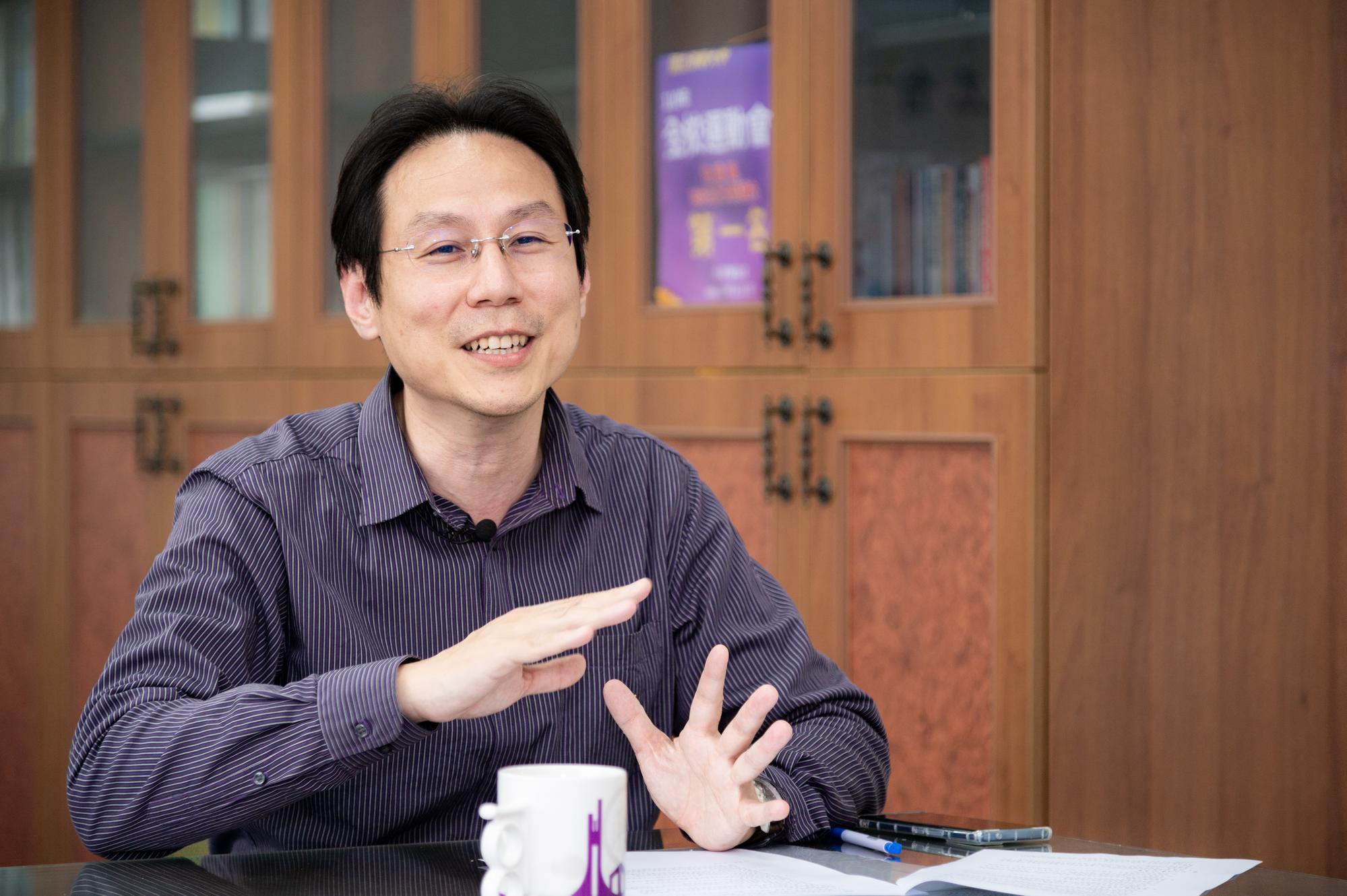
Vice president for academic affairs Wu Yung-hsien (巫勇賢) explaining the Guidelines.
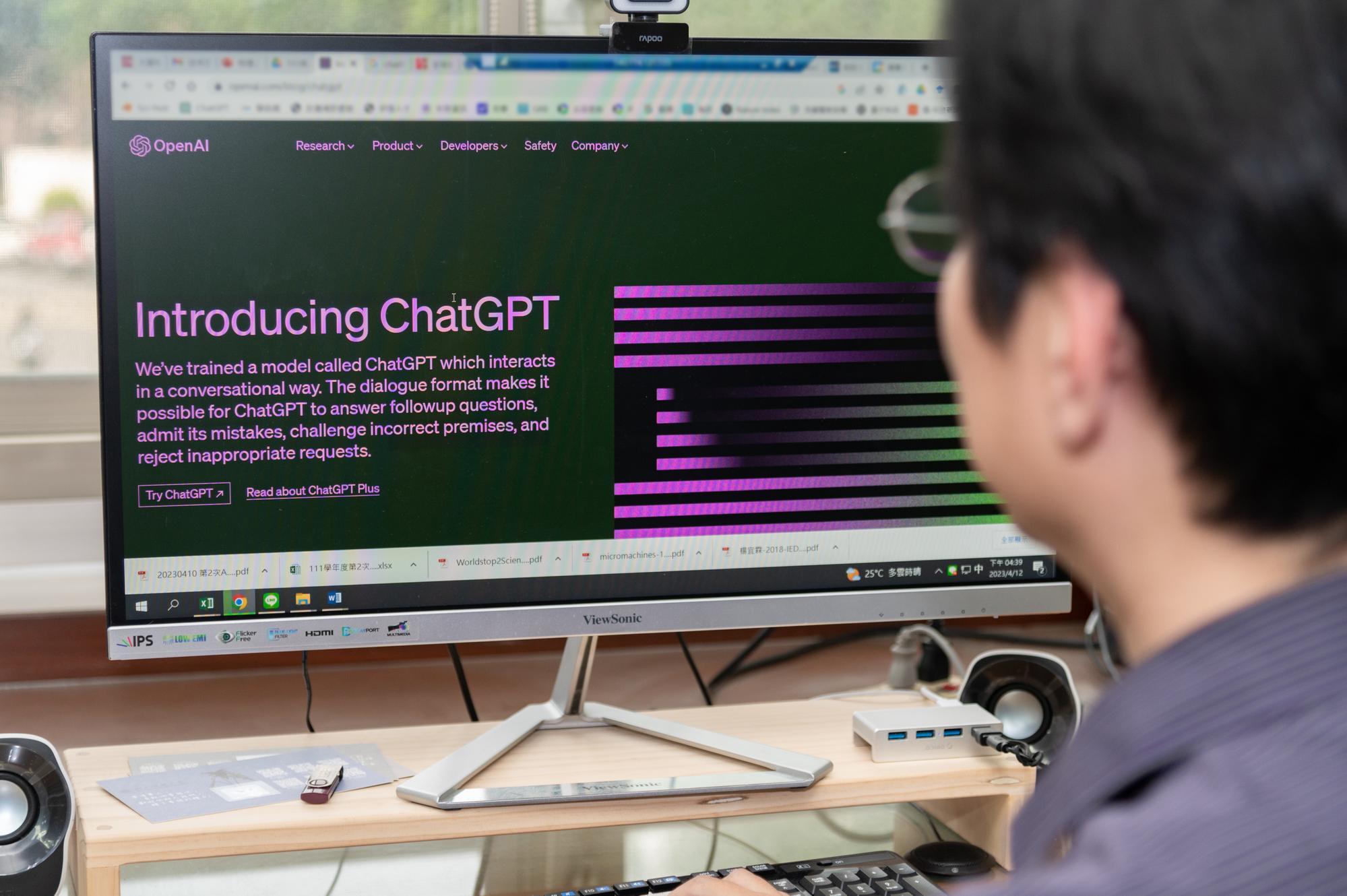
The Guidelines cover the use of generative AI, such as the chatbot ChatGPT.
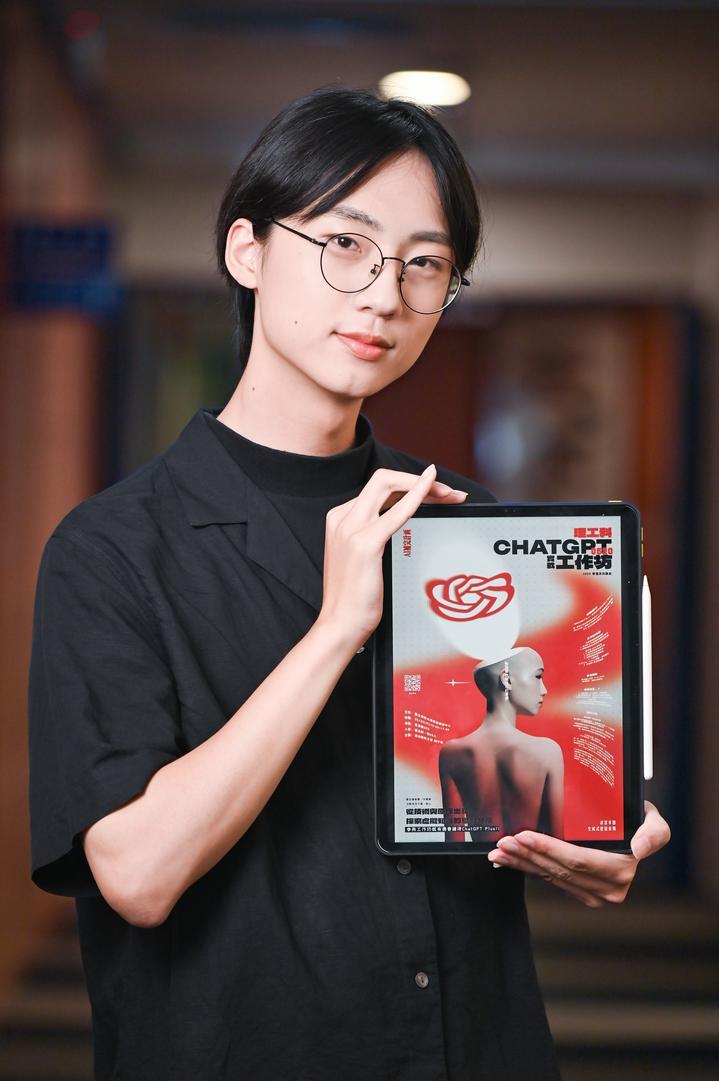
Ou has assisted in organizing a special lecture and a workshop for helping students master AI.

visited:
